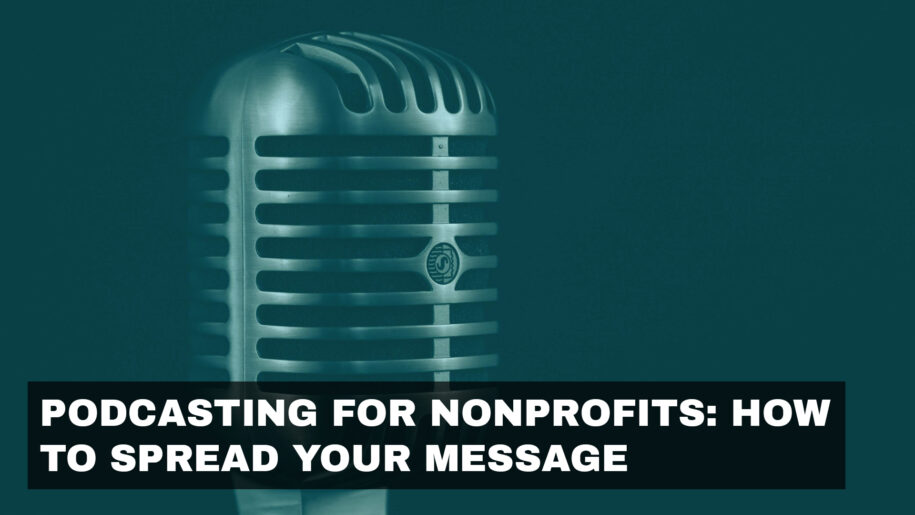In the digital age, podcasts have become a powerful tool for nonprofits to spread their message, engage supporters, and drive action. With their ability to convey stories, provide valuable information, and build connections, podcasts can significantly enhance your nonprofit’s outreach strategy. This blog post will guide you through the best practices for creating and promoting a podcast that effectively communicates your nonprofit’s mission and goals.
Why Podcasting for Nonprofits?
Podcasts offer a unique opportunity for nonprofits to connect with their audience on a deeper level. They allow for storytelling, expert interviews, and discussions that can highlight your cause in a compelling way. Here are some reasons why your nonprofit should consider podcasting:
- Personal Connection: Podcasts create a personal connection with listeners, allowing your audience to hear the passion and dedication behind your cause.
- Accessible Content: They provide easily accessible content that supporters can listen to while commuting, exercising, or relaxing.
- Cost-Effective Outreach: Podcasting is a cost-effective way to reach a broad audience without significant investment in production and distribution.
Getting Started with Nonprofit Podcasting
- Define Your Purpose and Goals:
- Mission Alignment: Ensure your podcast aligns with your nonprofit’s mission and objectives. Determine the key messages you want to convey.
- Audience Identification: Identify your target audience. Understand their interests and preferences to tailor your content accordingly.
- Content Planning:
- Episode Themes: Plan your episodes around themes that resonate with your audience. Consider topics like success stories, expert interviews, behind-the-scenes looks, and updates on your projects.
- Frequency and Length: Decide on the frequency of your episodes (weekly, bi-weekly, monthly) and the ideal length (typically 20-40 minutes).
- Quality Production:
- Equipment: Invest in good quality recording equipment, such as microphones and headphones, to ensure clear audio.
- Editing Software: Use reliable editing software to polish your episodes and remove any background noise or errors.
- Engaging Storytelling:
- Compelling Narratives: Use storytelling techniques to make your episodes engaging. Share personal stories, impactful experiences, and real-life examples.
- Guest Speakers: Invite guests who can provide valuable insights or share their experiences related to your cause.
Promoting Your Nonprofit Podcast
- Optimize for SEO:
- Descriptive Titles: Use relevant keywords in your podcast titles and descriptions to improve discoverability.
- Show Notes and Transcriptions: Provide detailed show notes and transcriptions to enhance SEO and accessibility.
- Leverage Social Media:
- Platform Promotion: Share your episodes on your nonprofit’s social media platforms. Use engaging visuals, quotes, and teasers to attract attention.
- Hashtags and Tags: Use relevant hashtags and tag guests or partners to expand your reach.
- Email Marketing:
- Newsletter Inclusion: Include your podcast episodes in your nonprofit’s newsletter. Provide a brief summary and a direct link to the episode.
- Email Campaigns: Create dedicated email campaigns to promote special episodes or series.
- Collaborate and Network:
- Guest Cross-Promotion: Collaborate with other podcasters, influencers, or organizations. Cross-promote each other’s content to reach new audiences.
- Events and Webinars: Promote your podcast during events, webinars, and live sessions. Encourage attendees to subscribe and listen.
- Engage Your Audience:
- Call to Action (CTA): Encourage listeners to take specific actions, such as donating, volunteering, or sharing your podcast.
- Feedback and Interaction: Ask for listener feedback and interact with your audience through social media, email, or live Q&A sessions.
Measuring Success and Adapting
- Track Metrics:
- Listener Analytics: Use podcast analytics tools to track listener metrics, such as downloads, plays, and audience demographics.
- Engagement Rates: Monitor engagement rates, including social media interactions, email open rates, and website traffic.
- Continuous Improvement:
- Feedback Integration: Incorporate listener feedback to improve your content and address any concerns or suggestions.
- Content Adaptation: Adapt your content strategy based on performance metrics and audience preferences.
Podcasting can be a transformative tool for nonprofits, enabling you to spread your message, engage supporters, and drive meaningful action. By defining your purpose, planning engaging content, leveraging SEO techniques, and promoting effectively, you can create a podcast that resonates with your audience and amplifies your nonprofit’s impact. Embrace the power of podcasting to share your stories, inspire change, and build a stronger community around your cause.


